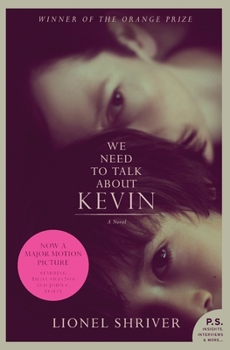We Need to Talk about Kevin Tie-In
Select Format
Select Condition 
Book Overview
Now a major motion picture by Lynne Ramsay, starring Tilda Swinton and John C. Reilly, Lionel Shriver's resonant story of a mother's unsettling quest to understand her teenage son's deadly violence, her own ambivalence toward motherhood, and the explosive link between them reverberates with the haunting power of high hopes shattered by dark realities.
Like Shriver's charged and incisive later novels, including So Much for That and The Post-Birthday World, We Need to Talk About Kevin is a piercing, unforgettable, and penetrating exploration of violence, family ties, and responsibility, a book that the Boston Globe describes as "sometimes searing . . . and] impossible to put down."
Customer Reviews
Both insightful and heartbreaking.
Fantastic characters
Could not put it down!
The new children's hour
Gets into your head
A Brilliant And Sensitive Psychological Study- A Great Novel
Born Bad?
We Need to Talk About Kevin Mentions in Our Blog

You may not know what it is, but chances are you've read one. By definition, an epistolary novel is one made up partly or entirely of documents like letters, diary entries, newspaper articles, or emails. These stories capture the longing we feel for togetherness in times of separation. Here are ten of our favorites.






